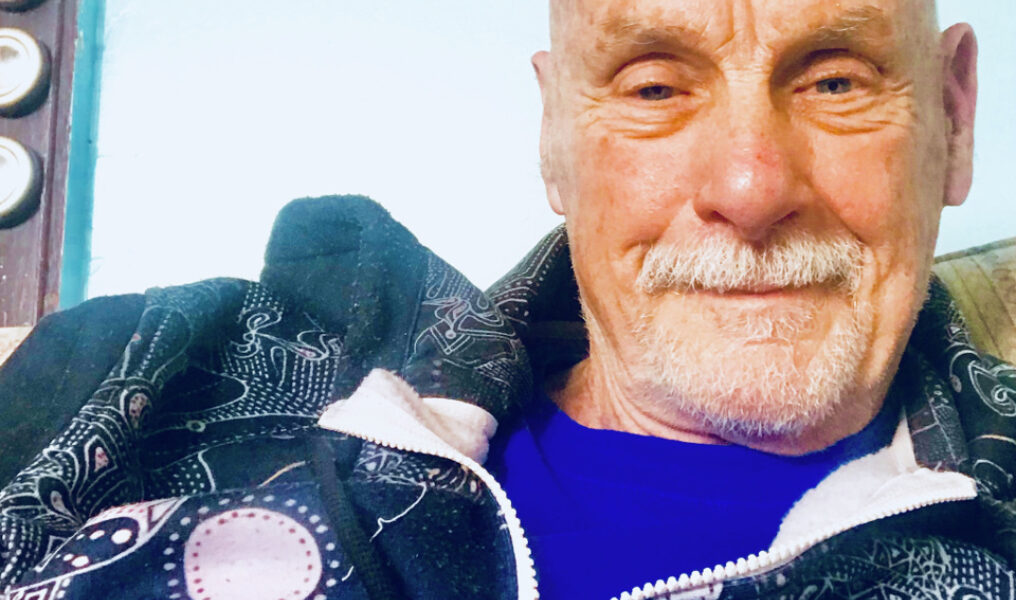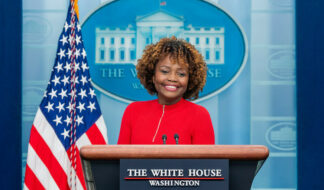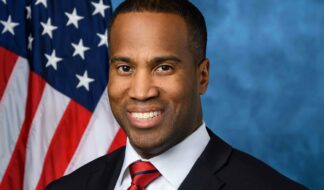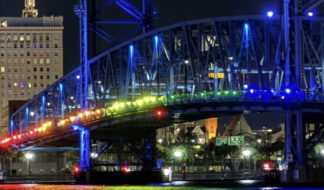As a teenager in the mid-1950s, I listened faithfully to country and western music radio — especially Patsy Cline — and later 'Senator' Bristo Bryant's rhythm and blues after high school class broadcasts. (A favorite group was Billy Ward and His Dominoes.)
At age 19, my first partner, ballet dancer and pianist Ernie Gilbert, 23, introduced me to classical music. He was writing for the Wayne University Collegian as entertainment by-liner, and took me with him — a gay "Mutt and Jeff" pairing, if ever — for his reviews of ballet companies, symphony orchestras, soloists, operas and Sol Hurok musical galas at Detroit's Masonic Temple. And foreign films!
Basically a street kid before I met Ernie, my introduction and our partnership, stretching over four years, changed my life dramatically. He was the best catalyst that happened to my young, formative gay life.
In 1960, Ernie got me a sales job at Discount Records, in the Sheraton Cadillac on Washington Boulevard. It was there that my 20-year friendship with Detroit Free Press music critic Collins George began.
Mr. George was the first black journalist to be hired at the Freep. He was a regular customer at Discount Records. George, prior to his music critic tenure (1953 to 1980), had been a managing editor for the Pittsburg Courier, then and now one of the nation's major African-American newspapers; and, as a Howard University graduate with a French Language minor, he taught French at Howard briefly.
"I was so nervous during my first class, I had to sit on my hands to keep them from shaking," George once commented to friends gathered for drinks at his Lafayette Park condo. (A favorite side "dish:" chopped fruit, coconut and marijuana topping, drenched with Grand Marnier.)
When our friendship started, George was also hosting a weekly classical music program for WQRS-FM, playing selections from his extensive collection of hundreds of LPs. He was a close friend of sopranos Leontyne Price and Jessye Norman.
George had a small east-side Iroquois upstairs flat at the time; for him, a real plus — his meals were lovingly prepared by someone whom I never saw, never met, his "feeding lady."
As I got to know George I introduced him to two close gay friends, Dan Stevens and Cecil Miller. Soon George began referring to us as "my daughters."
Of course we enjoyed his celebrity company, but we were also content to drink his ample supply of available scotch, recount our adventures of recent and previous seductions, before hitting the bars — cost free thanks to George — on weekends.
George was a gifted storyteller. We learned of his tenure as a World War II news correspondent in Italy, and of a year spent as a conscientious objector in a CO camp with two close detainees: famed British author Christopher Isherwood and Denham Fouts, a handsome escort of much notoriety to gay royalty and final drug overdose demise.
(George is the model for a character in Isherwood's novel, "Down There On A Visit". George shared a loving letter with me that Isherwood had written him sometime after the war.)
When I met George, there were two other major newspaper critics who were gay or supposedly bi. The Times critic, Frank Gill, was married to the publisher's daughter. He was also the advisor for the Wayne University Collegian. (He advised a journalism to scratch his column headline, "Liberace gives gay concert!"
Gill said he had once partied mid-1940s with Lord Alfred Douglas, Oscar Wilde's queeny companion. He also had one of his music compositions, "Fanfare and Fiesta for A State Occasion" performed by the Detroit Symphony Orchestra.
The News critic, Joe Mossman, something of a pompous twit, delighted to be the last to walk into a DSO concert at Ford Auditorium, to be seen by everyone, then sit behind George and whisper comments to get George, who had survived two minor strokes, to uncontrollably guffaw out loud.
(Mossman was fired for drinking on the job, and as the result of an intermission backstage visit to verbally abuse dancers from the American Ballet Company for what he felt was lackluster dance performance.)
Dan, Cecil and I took George with us to Chicago one St. Patrick's Day weekend. The river was dyed green, and a living rosary was in the traditional parade. Quipped Dan, "I like the Second 'Our Father' on the right."
Added George, "You'll do bead work for that, my dear!"
Cecil was 25 when he died. He was scheduled to have minor surgery. He died on the operating table of an unanticipated aneurism. Dan, George and I went to his riverside apartment to remove gay-related items — there were dozens — before Cecil's parents came to town.
George kept a memento picture of himself and Cecil on his writing table. He frequently toasted Cecil, "Miss you ever so, mon cher. A bientot."
Dan died in 1980, at the onset of the AIDS epidemic. He was among Michigan's first.
George died in 1981 during a dinner at a gay favorite downtown Detroit restaurant, Sweitzer's. He had a sudden heart attack triggered by a tracheal throat lodging of a steak sliver.
DSO Assistant Concertmaster Gordon Peterson, attending with him after a Ford Auditorium concert, performed a Heimlich maneuver. To no avail. George died on the table.
The following year I faced up to my alcoholism. What's past is prologue. One day at a time, followed by the remembered bygone music of the sadly rainbow-tempered night.
Faintly heard by the last of George George's gay "daughters." Om shanti.
Parting Glances: Black Gay Detroit Friends (Pt. 1)










